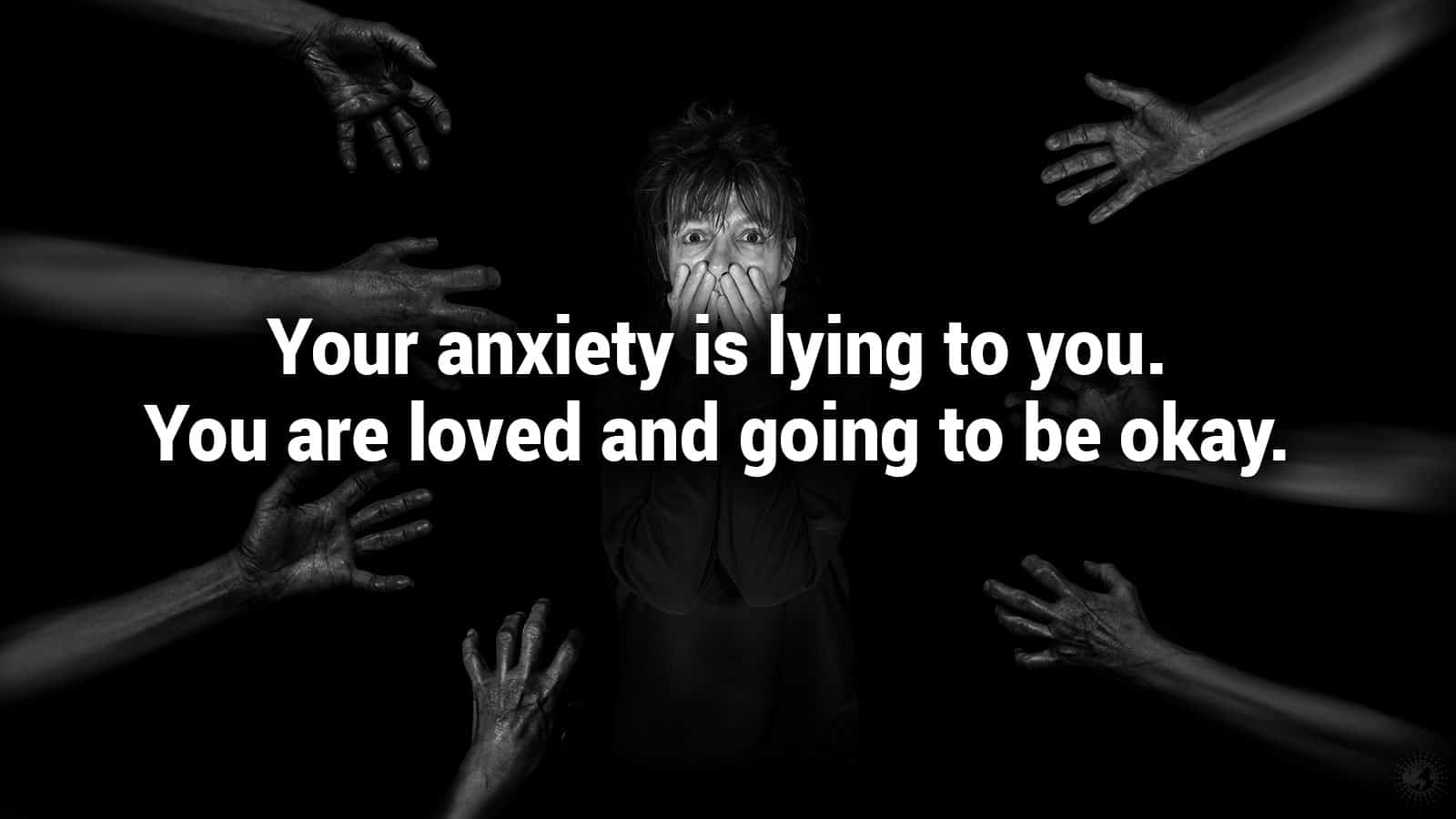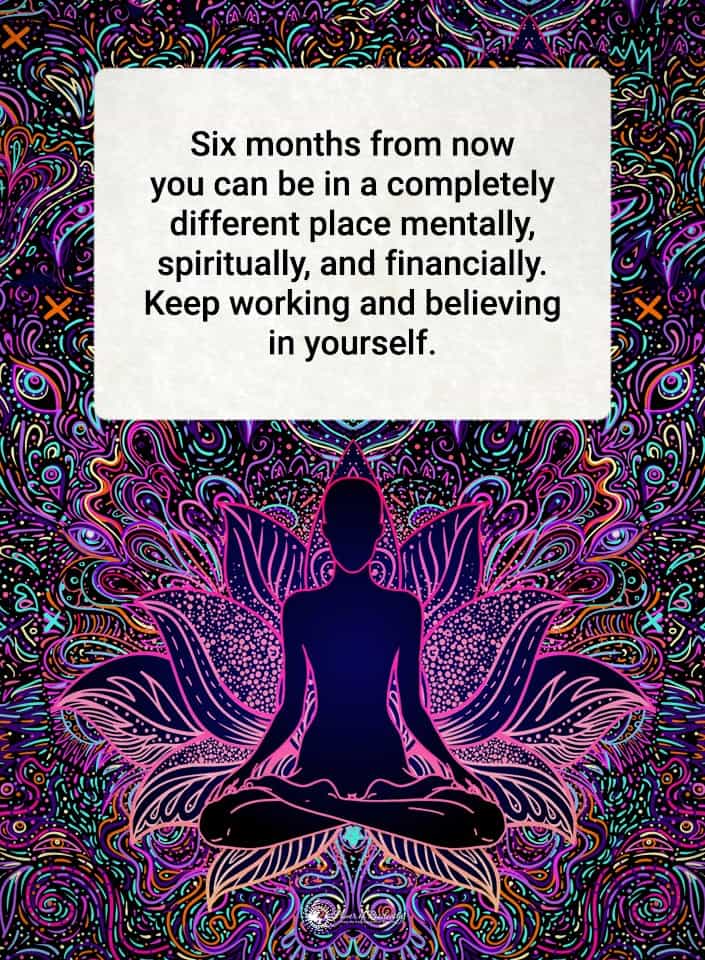Finding mental clarity can seem challenging when we have so much on our plates. Given all the chores and responsibilities we have to take care of, our brains can quickly become frazzled and overwhelmed. While our brains haven’t yet evolved to deal with the modern world properly, we can take specific steps to keep anxiety at bay. Unfortunately, around 18% of the U.S. population, or 40 million adults, suffer from an anxiety disorder every year.
People with anxiety have a higher likelihood of being diagnosed with another mental disorder, such as depression. In fact, according to stats from the Anxiety and Depression Association of America (ADAA), around 50% of people with depression have anxiety as well. While genetics play a role in causes of anxiety, one study found that the disorder has a heritability of only 30%. So, don’t feel defeated just because you get a diagnosis; it doesn’t mean you can’t treat or manage symptoms.
Four significant risk factors that increase the chances of developing anxiety
According to information from the National Institute of Mental Health, the following are common risk factors for all types of anxiety disorders:
- A shy or withdrawn disposition beginning in childhood
- Exposure to stressful and traumatic events in childhood or early adulthood.
- A history of anxiety or other mental illness in biological family members.
- Physical health conditions, like thyroid concerns, heart arrhythmias, or caffeine or other substances/medications, may produce or aggravate anxiety symptoms. Thus, a physical health examination is helpful in the evaluation of a possible anxiety disorder.
Symptoms of anxiety
While symptoms may vary among different types of anxiety disorders, most people will experience one or more of the following:
- Feeling restless, on edge, or wired
- Being fatigued easily
- Difficulty concentrating
- Being irritable.
- Having muscle tension.
- Difficulty controlling feelings of fear, doom, or worry.
- Having sleep issues, such as difficulty falling or staying asleep, restlessness, or unsatisfying sleep
- Heart palpitations, a pounding heart beat, or an accelerated heart rate.
- Sweating or clamminess.
- Trembling or shaking.
- Sensations of being short of breath, smothering or choking.
- Feelings of impending doom
- Feelings of being out of control
Now that you know several of the causes and common symptoms of anxiety disorders, we want to give you some relief. Let’s talk about some ways to combat overthinking and bring some much-needed relaxation and calm into your life.
Here are seven ways to combat anxiety and promote mental clarity:
1 – Remain in the present moment.
As they say, only worry about today because tomorrow’s troubles will take care of themselves. We can’t make changes to the past or future, but we can control the present. Do your best to stay focused on the task at hand, and you’ll notice a lot of your brain fog dissipate. While a clouded brain can result from nutrient deficiencies or other physical problems, mental health plays a huge role too.
Much of the anxiety comes from overthinking, and it can become an addiction after a while. If you think of anxiety as a habit rather than a chemical issue in your brain, it feels easier to control. Of course, this doesn’t mean that thinking less will cure anxiety, but it can ease your symptoms immensely.
If you find your brain wandering, gently bring it back to the present moment. Remind yourself that you can only control things in your immediate awareness, so let everything else roll off your shoulders. We put so much pressure on ourselves. But remember, we are only human. So breathe and take life one moment at a time.
2 – Try the Relaxation Response.
Coined by Dr. Herbert Benson, professor, cardiologist, and founder of Harvard’s Mind/Body Medical Institute, this can significantly reduce stress. It helps your body to slow down, release feel-good chemicals, and calm the fight-or-flight response. The relaxation response is the exact opposite of the stress response. Similar to meditation, this exercise can reduce blood pressure and heart rate significantly, reduce stress, and promote well-being. To do it, follow these steps:
- Sit quietly in a relaxed, yet alert position.
- Close your eyes.
- Consciously relax all your muscles, starting at your feet and moving to your forehead. Keep them relaxed, and remember to remove your tongue from the roof of your mouth. We often hold tension in our mouth and jaw as well.
- Breathe at an even interval through your nose and become aware of your breathing. As you breathe outward, say a word to yourself, such as “one.” This technique helps you to keep focused on your breathing and remain in the present moment.
- Continue this for 10 to 20 minutes, breathing in and out slowly and saying “one” on the exhale. Do not use an alarm for this exercise as you want to ease yourself out of it. Remain seated with your eyes closed for several moments after you’re finished. Then, open them and get up slowly.
- If you don’t feel relaxed the first few times, don’t worry. So get in the habit of sitting quietly and focusing on your breathing without expecting an outcome. As you deepen your practice, you’ll notice your overthinking dissipate.
- In time, you’ll notice a relaxed state without very much effort. Make sure to practice it once or twice a day, but not within a couple of hours of eating. The digestion process can affect your ability to concentrate and can cause restlessness.
 3 – Get out in nature.
3 – Get out in nature.
If you feel stressed or anxious or worried about something, take a break and get some fresh air. No one feels good staying inside all day under artificial lights; we all need some sunshine and the great outdoors. Maybe ask a friend to tag along if you don’t like walking on trails alone. We evolved in nature, so it makes sense that immersing ourselves in it would lower stress and anxiety.
Plus, natural environments seem to have a soothing effect on our senses and can help with overthinking. We’ve gotten disconnected from ourselves in part because the majority of our time is now spent indoors. Try to get at least 30 minutes of sunshine a day to gain mental clarity.
4 – Journal your feelings.
Do you feel like you might explode at any moment? Try writing your thoughts down and even burning the page afterward to let go of troubling emotions. Writing can become a form of therapy if you have a lot of stress in your life. Plenty of therapists now recommend it because it helps you sort through complicated feelings or situations.
Writing your inner-most thoughts down on paper might help you see what may trigger your anxiety. If you know what musings cause it, you can start taking steps to challenge that thinking.
5 – Talk to a trusted friend or family member.
Getting mental clarity doesn’t always have to mean sitting quietly in meditation or going for a nature walk. Sometimes, you need a productive venting session with someone you trust. We retain so much tension in our minds and bodies throughout the day, so releasing it is essential. If you continuously bottle up your feelings, you might lash out at someone and say things you don’t mean.
First, ask the person in mind if they can hold space for you right now. This query is an excellent way of asking, “Do you have the time and mental energy to help me out?” Everyone has their problems to contend with, and they may have too much on their plate at the moment. However, the friend or family member may need someone to talk to as well and may welcome your phone call.
We all need someone to lean on in life, so don’t hesitate to ask for help when you need it. Always remember that we are all just walking each other home.
6 – Exercise.
Nothing helps you battle overthinking like an excellent sweat session at the gym. Specifically, aerobic exercises such as jogging or HIIT can get your heart rate up and help you break a sweat. Make sure to get at least 30-45 minutes of intense cardio into your daily routine three times a week. You’ll notice your mood improve and mental clarity will come more easily to you.
7 – Prioritize sleep.
If you stay up late watching Netflix and wake up early each day for work, your mind won’t feel too happy. Get at least seven to eight hours of sleep every night, and try to maintain a steady sleep schedule. Turn off your technology a few hours before bed, and stick to a sleep routine. You’ll feel more energized and mentally healthy by getting decent shut-eye every night.
 Final thoughts on how to achieve mental clarity and beat anxiety
Final thoughts on how to achieve mental clarity and beat anxiety
Anxiety can seem daunting at times, as it can easily take over your life if you allow it. However, sometimes you need to put things in perspective. Make sure to take time for relaxation and self-care. Get outdoors, maintain an exercise and sleep routine, and don’t bottle up your feelings. Mental clarity comes from focusing on the present moment as much as possible, and only taking responsibility for the things you can change.
The post 7 Ways to Find Mental Clarity and Beat Anxiety appeared first on Power of Positivity: Positive Thinking & Attitude.
【Top 10 Malaysia & Singapore Most Beautiful Girls】Have you follow?
